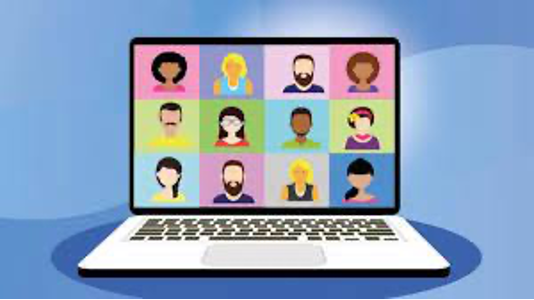Supporting Graduate Students' Academic and Professional Success

As we enter the new quarter, you may be preparing to attend your first (or third, or twelfth) conference. Whether these conferences are in person, online, or hybrid, you may find yourself looking for some tips and tricks. Here is a breakdown of what you may want to keep in mind before, during, and after your conference.
Pre-Conference:
[Image description: The word "BEFORE" stamped in red]
Pictured: Planning ahead ensures you can spend your conference enjoying time with colleagues (instead of frantically finishing your presentation in your hotel room)!
- Apply for the GSA travel grant! The UCR GSA provides funds for students traveling for conferences. They cover expenses such as the registration fee, travel, and lodging. You must apply for the travel grant by the first of the month before your conference (e.g., if your conference is in July, you must apply by June 1). The award amount depends on how far you are traveling and whether you are presenting. You may be awarded up to $1400 in total per year, so be sure to make use of this resource! There may also be departmental or program travel grants. Reach out to your department to gather the steps to apply for departmental grants (you may need to submit a GSA travel grant application in order to be eligible for a departmental grant, so keep that in mind).
- Sign up for pre-conference activities! You may need to sign up for certain talks, symposia, etc. if you would like to attend. Be sure to check out the conference website or app ahead of time so that you can secure a spot.
- Volunteer to work! These opportunities are great for networking and demonstrating a commitment to service in your field. They are also often accompanied by a discounted conference registration fee, so be sure to sign up early as these spots often fill up quickly.
- Make and print business cards! Having business cards can be helpful for networking. Be sure to include any socials that are relevant to your work (e.g., ResearchGate or LinkedIn). There are many services available for printing business cards (e.g., Canva or UCR Printing & Reprographics), but be sure to leave yourself enough time to get them printed and looking perfect.
- Print your poster! If applicable, be sure to print your poster before your presentation time. You can print the poster at UCR’s library for a reasonable price, or you may use a local FedEx/Kinkos. If you are looking for a fabric option (easier to carry on a plane, and if you want to keep the poster after the conference) you can check out https://postersmith.com/. Keep in mind, that option is more expensive.
- Update social media (e.g., Twitter, LinkedIn)! Be sure that your social media presents a reflection of yourself that you would want seen by future employers and colleagues. Social media can also be a good way to network and stay in contact with people after the conference!
- Prepare your presentation! Prepare your slides, handouts, or anything else applicable. Practice and time your presentation and have speaker notes if needed. For talks, try to have about 30s-1 min per slide, and maximize use of visuals. For posters, practice your “elevator pitch” and make a visually appealing poster (you can try using a QR code, an increasingly utilized strategy!) Try not to “wing it” if possible.
- Pack your bags! Be sure to dress the part. If your conference is more formal, bring slacks, blazers, and other business wear. If your conference is outdoor or incorporates a fieldwork component, bring appropriate attire. Don’t forget your technology (laptops, plugs, adaptors, pointers, etc.).
- Prepare your conference schedule! Plan ahead! If your conference has an app, load the sessions you plan to attend into your app calendar. If not, add them into your Google, Apple, or other calendar so that you can stay on track. Finally, set SMART goals for what you would like to accomplish at the conference.
Mid-Conference:
[Image description: A microphone in front of a large, blurred crowd]
Pictured: All of your prep work will pay off when it's time to present your work to your peers and colleagues!
- Attend sessions, workshops, meetings, socials, excursions, and more! Make the most of your conference experience. This is a time for you to learn, grow, and network.
- Bring a notebook (or notes app) and record names of people you may enjoy working with, names of universities where the research aligns with your interests, or names of companies that would be a good fit for your career goals! Another good tip is to jot notes on business cards you collect about the person and your conversation.
- NETWORK! Introduce yourself to people! A good place to do this is at poster sessions and social hours. Ask your advisor or a more advanced student to introduce you to people who may be a mutual connection. Be sure to get your timing right (e.g., don’t introduce yourself during a talk, or when the person is surrounded by a crowd).
- Present confidently! You have put in the preparation, now go in confidently and own your work! Whether you are standing by your poster or giving the keynote address, you earned your spot at that conference, so act accordingly.
- Be respectful! Call people Doctor, ask them appropriate questions about their research, and use respectful language.
Post-Conference:
[Image description: The word "relax" carved into sand]
Pictured: Take some time to recharge after your conference, but don't forget to follow up on the new connections you made!
- Connect immediately with people you met at the conference! Send follow up emails, social media connections, or other methods of communication while you are still fresh in their minds. Even if that message is just a “nice meeting you, hope to connect again soon!”, it goes a long way.
- Submit receipts for reimbursement! You must submit your receipts for reimbursement within two weeks of the last day of your conference to be eligible for reimbursement (through GSA). Accumulate your receipts (both print and digital) and turn them into GSA digitally as soon as you can.
- Do something with your work! If it’s a poster, hang it somewhere (on campus or at home). If it was a talk, ask for feedback from people you trust and respect who attended, and use that feedback to improve your manuscript or work.
- Apply for conference awards or nominate others whom you respect for a conference award!
- Rest, recover, and reflect. Conferences are lots of fun, but also exhausting. Give yourself the proper time to recover before jumping back into your work.
Virtual Conferences:
[Image description: A laptop screen displaying the faces of videoconference participants]
Pictured: You can network at virtual conferences, too!
My conference is online---how should I adjust? There are some factors that you should consider adjusting (or not adjusting) when attending a virtual conference.
- Adjust: networking! Online conferences require a more networking conscious effort. The first step you should take is becoming familiar with the conference’s platform. You may need to develop an avatar, profile, or something in a similar vein in order to make the most of the conference. You also may want to consider turning your camera on, asking questions out loud (in addition to the chat), and making the most of advertised social hours. The most important part of networking virtually is going in with a game plan, so make yours early and align it with your SMART goals!
- Adjust: your engagement techniques! Keeping your audience engaged virtually poses unique challenges, as you are less likely to have a captive audience. Consider integrating polls, questions, shout outs, or other engagement techniques that you have found to be helpful in your own online learning experience.
- Don’t adjust: attire! Although you may be tempted to show up to your computer screen in your PJs and slippers, it is actually a good idea to show up to your presentations dressed professionally (that includes shoes!). Dressing the part can help you play the part.
- Don’t adjust: your presence! You shouldn’t come to the conference less present just because you may have to work harder to keep your online audience engaged. Be the audience member you hope to have in your own audience.
Now that you have some tips, a checklist, and your SMART goals, go prep for your next conference!



